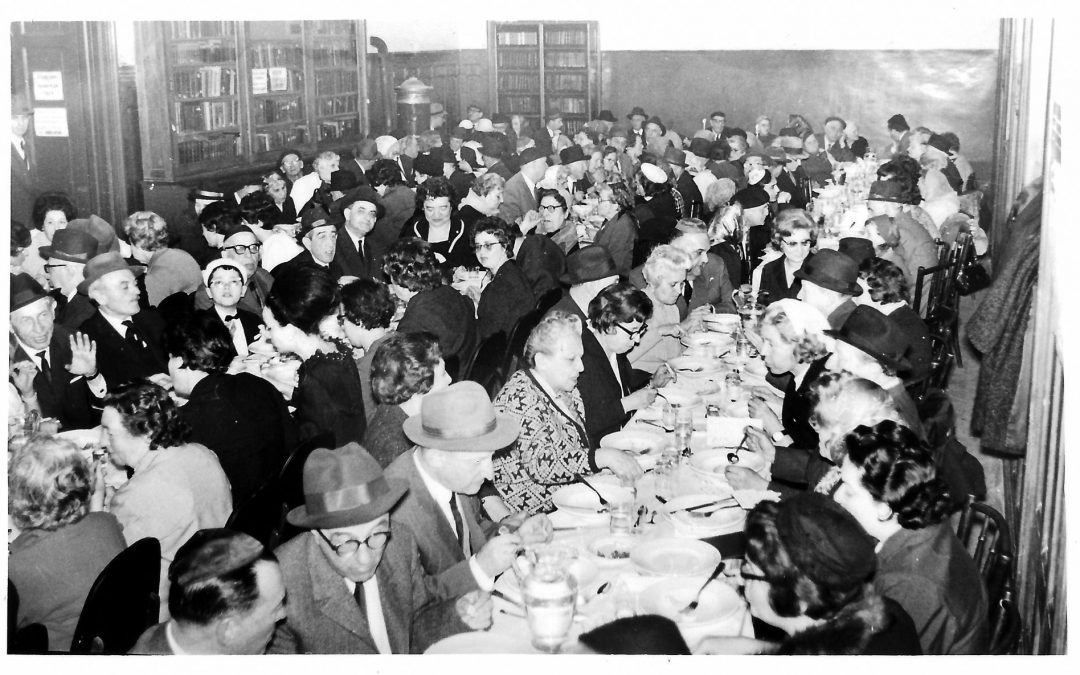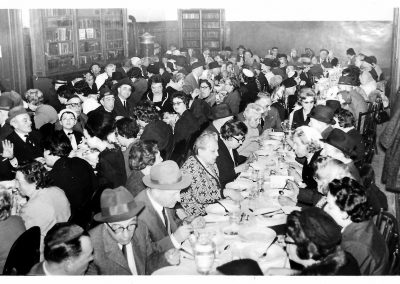After the coup d'etat of August 23, 1944, the communist dictatorship was gradually established. In 1948, denominational schools were abolished, including Israeli schools. The expropriation of owners, entrepreneurs and traders as well as measures to restrict freedom of movement and expression have triggered a wave of emigration from Romania to, mainly, the State of Israel. Some repressive measures targeted Jews in particular. After 1944, Zionist organizations became legal, but since 1949, Zionists have been persecuted, arrested and sentenced to prison. After the Hungarian Revolution of 1956, an unofficial policy of removing Jews from leading positions was envisaged. A factor in the decrease in the number of Jews was the process of assimilation, but the continuity of the Timișoara Jewish community was really broken by the policy of the communist government, detrimental to the majority in general and hostile to the Jews in particular.
The totalitarian government's policy toward Jews has been complex. Anti-Semitism was officially combated, with anti-Semitic manifestations being censored or punished. Since the 1960s, collective celebrations have been organized in the Community and Hebrew courses, and social service has been provided with the financial support of the American Joint Jewish Distribution Committee. Participating in the choir has become a very attractive activity. The kosher canteen in the Community House offered the elderly and the needy as well as the students a lunch at a modest price. The Romania-Israel Friendship Association brought together intellectuals from Timișoara for high-level conferences.
From 1941, Rabbi Dr. Ernest Neumann was the spiritual leader of the neolog community, along with Rabbi Dr. Miksa Drechsler, then, after his death in 1970, alone. He also took over as president of the community in the late 1970s. In difficult times for the community, he showed a great deal of diplomatic sense to represent and defend the interests of the community. Thanks to his charismatic personality, he strengthened solidarity among the community and aroused understanding and sympathy from the whole city.
If economically and commercially, the communist system hindered individual initiatives, academically, Jewish personalities made important contributions. It is impressive the number of those who played a key role in founding research and education within the Faculty of Medicine, established in July 1945, now the University of Medicine and Pharmacy "Victor Babeş". We mention a few names: Zalman Iagnov, first vice dean of the faculty, Nicolae Rottenberg, embryologist Benedict Menkeş LINK, neurologist Oscar Sager, ophthalmologist Nicolae Blatt, pathologist and microbiologist Gheorghe Badensk, Maria W. Zalman, Anuţa Elias, physiologist Francisc Schneider LINK, psychiatrist Stefan Stössel, Geza Deutsch LINK, in biochemistry and nuclear medicine, and many others. At the Polytechnic were, among others, Iosif Kaufmann and Wiliam Löwenfeld, Bernhard Rothenstein, Victor Feldmann, Desideriu Kohn. Piano teachers Ella Philip and Vera Székely have raised generations of musical talent. At the University, the historian Victor Neumann, the sociologist Robert Doron Reisz . Many have stood out in the management of some companies, including Arke Marcus and Ladislau Schimmerling. It is a chapter of intellectual excellence that deserves to be studied and presented in detail.
Source
- In the footsteps of the Jewish Timisoara. More than a guide. By Getta Neumann, Brumar Publishing House, 2019
- Timișoara Jewish Minipedia on the website of the Jews from Timișoara www.bjt2006.org

